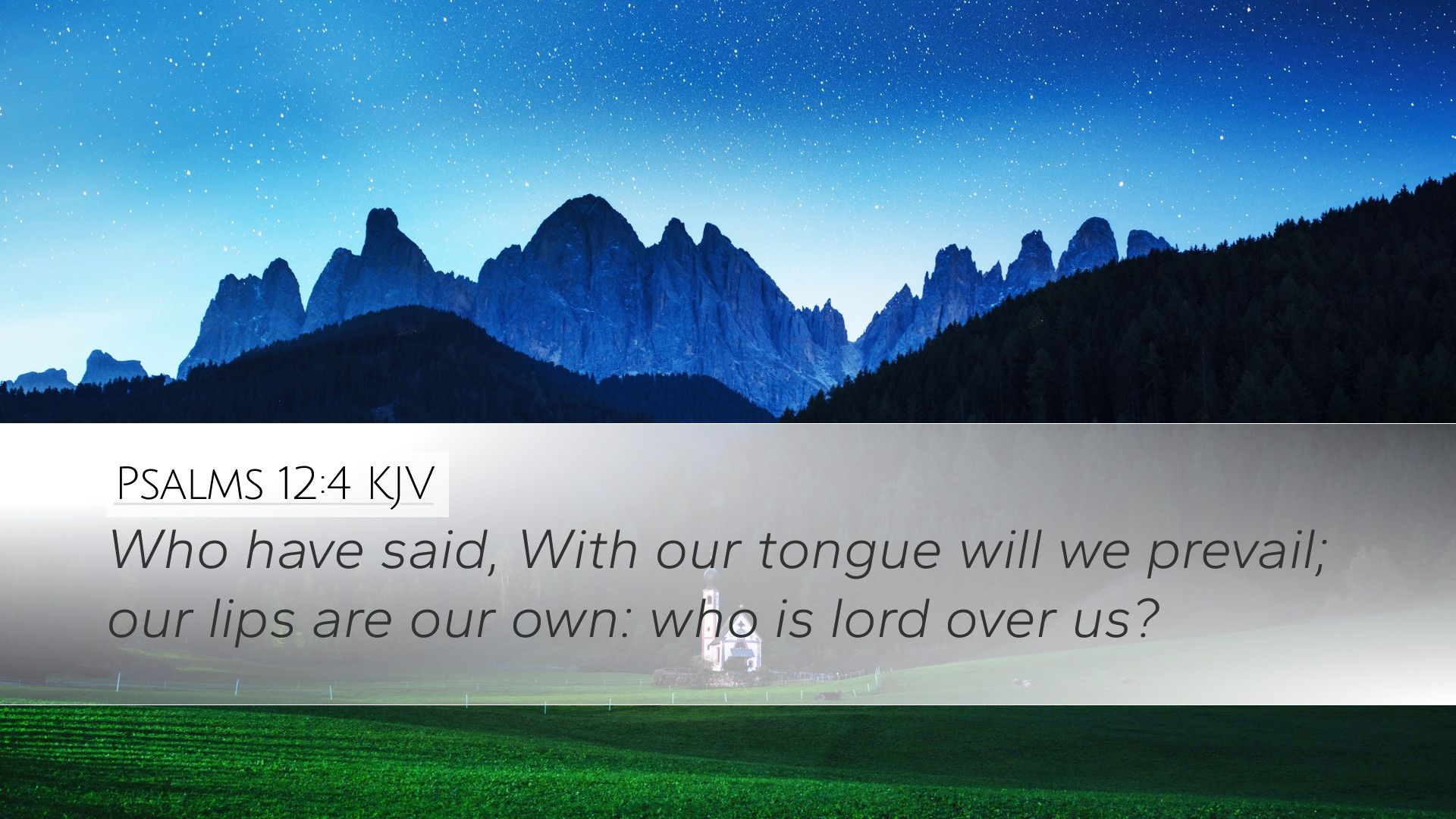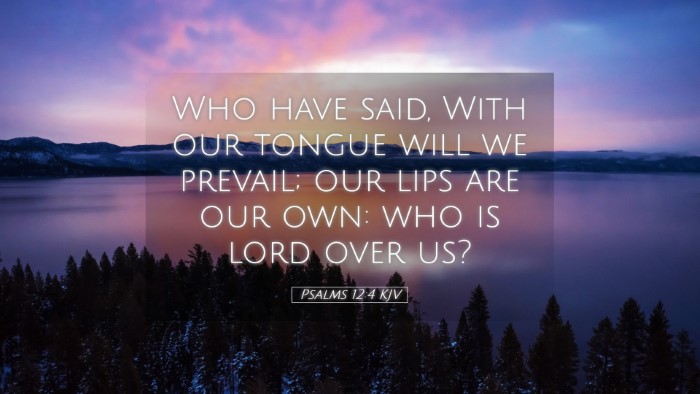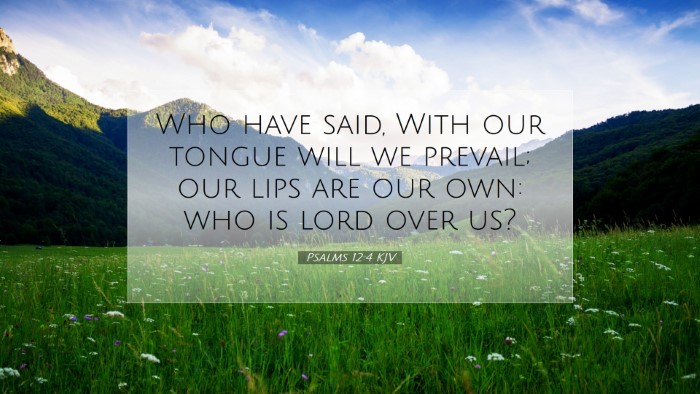Psalms 12:4 - Commentary Overview
Psalms 12:4 states, "Who have said, With our tongue will we prevail; our lips are our own: who is lord over us?" This verse highlights the attitude and ungodly confidence of those who exploit their speech to dominate and manipulate others, suggesting a rebellion against divine authority.
Contextual Analysis
This psalm, attributed to David, emerges from a period of distress where the Psalmist grapples with the degradation of truth and righteousness amidst a deceitful society. The opening verses lament the absence of faithful believers and the prevalence of falsehood, setting the stage for the stark assertion in verse 4 regarding the arrogant declarations of the wicked.
Matthew Henry's Commentary
Matthew Henry presents a comprehensive view of Psalms 12, emphasizing the conflict between the faithful and the wicked. He notes that the phrase "With our tongue will we prevail" reveals a mindset of autonomy where individuals believe they can achieve their goals through manipulation and lies. Henry suggests that this is symptomatic of a society where truth has become a casualty, as evil thrives unchecked.
-
Human Autonomy: Henry elaborates on the assertion of "our lips are our own" as a declaration of independence from divine accountability. He argues that such a claim is rooted in pride and reflects a broader rejection of God’s sovereignty.
-
Challenging Divine Authority: The latter part, "who is lord over us?" underscores a rebellion against divine authority, suggesting that the wicked believe their words confer power independent of God.
Albert Barnes' Insights
Albert Barnes, in his exposition, provides a rich examination of the pride and insolence displayed by those who manipulate language for personal gain. Barnes interprets the verse as a representation of the confidence of the ungodly, viewing their verbal prowess as a means to achieve their ends without regard for God.
-
Verbal Dominion: He notes that the claim of prevailing "with our tongue" emphasizes the use of speech as a tool for dominance. This reflects an understanding of language as a weapon in the spiritual and moral arenas of life.
-
Moral Depravity: Barnes argues that this verse serves as a stark reminder of the moral decay in society, where individuals deceive themselves into believing they hold ultimate power over their fates. The denial of God’s lordship leads to chaos.
Adam Clarke's Exegesis
Adam Clarke offers a methodological approach to understanding the psalm, providing insights into the cultural and spiritual implications of the words. He draws attention to the social dynamics at play, noting the contextual pressures that lead individuals to reject divine authority.
-
Expression of Defiance: Clarke emphasizes that this verse encapsulates a mentality of defiance against the principles of morality and truth, suggesting that the wicked see themselves as the arbiters of truth, unbounded by any divine moral law.
-
Implications for Society: His analysis indicates that such a perspective fosters societal decay, as the erosion of truth leads to despotism disguised in the guise of self-governance.
Theological Implications
The theological ramifications of Psalms 12:4 are profound, highlighting the tension between divine authority and human autonomy. This verse serves as a cautionary tale about the consequences of rejecting God’s sovereignty. It challenges believers to recognize the importance of truth and the dangers posed by a society that elevates personal will above divine will.
-
Rejection of God's Sovereignty: The assertion that one's lips are "our own" is a denial of God's ultimate authority in the lives of individuals and society. The psalm challenges readers to contemplate the implications of living in rebellion against God's commandments.
-
The Power of Speech: Additionally, this verse underscores the power of speech and the responsibility that comes with it. In claiming dominion through words, humanity often forgets that all authority ultimately derives from God.
Conclusion
Psalms 12:4 serves as a pertinent reminder of the complex interplay between truth, autonomy, and divine authority. The insights provided by scholars such as Matthew Henry, Albert Barnes, and Adam Clarke illuminate the depth of this verse, urging believers and scholars alike to reflect on the implications of their words and the authority behind their assertions. This reflection is critical for fostering a society rooted in truth and acknowledging the sovereignty of God over all aspects of life.


